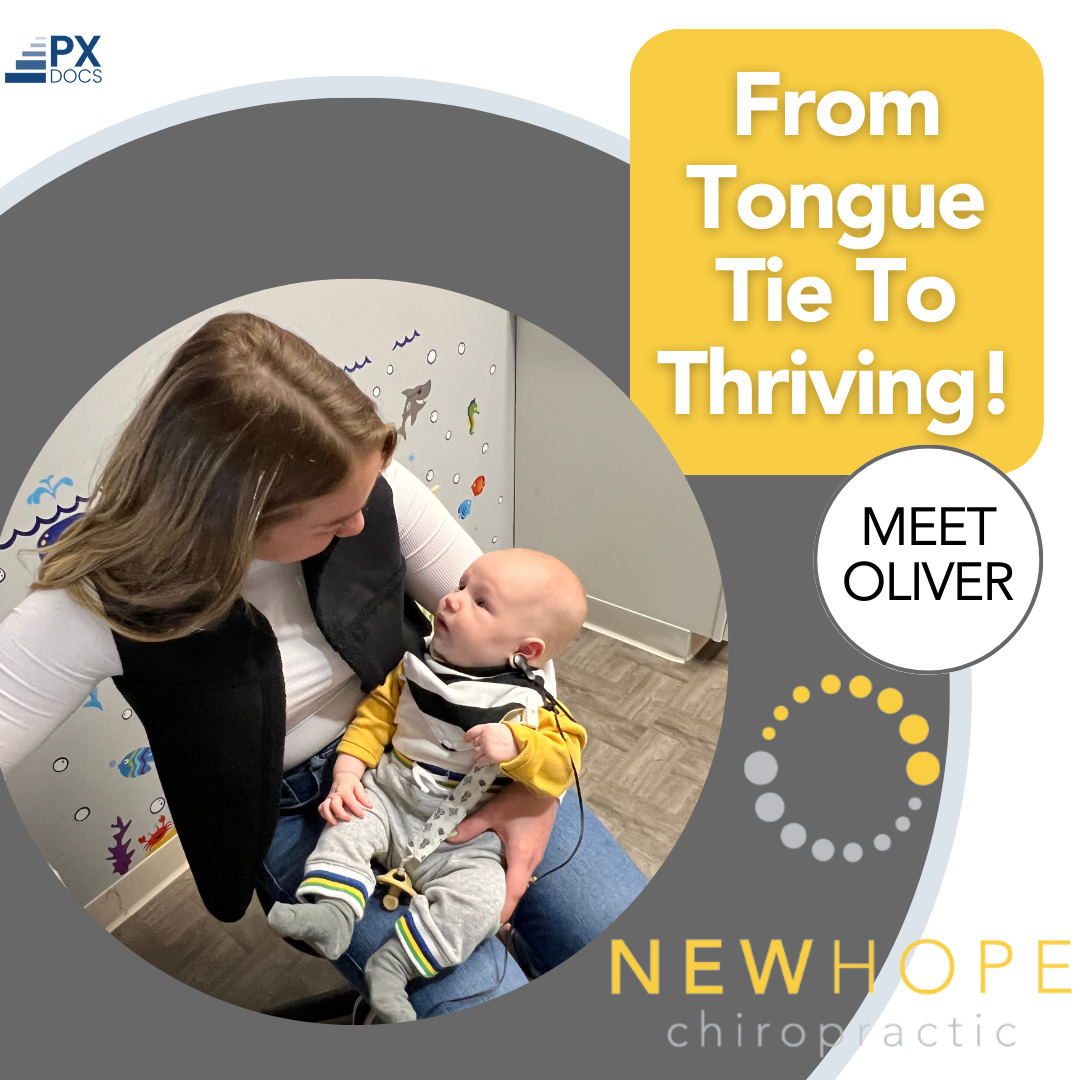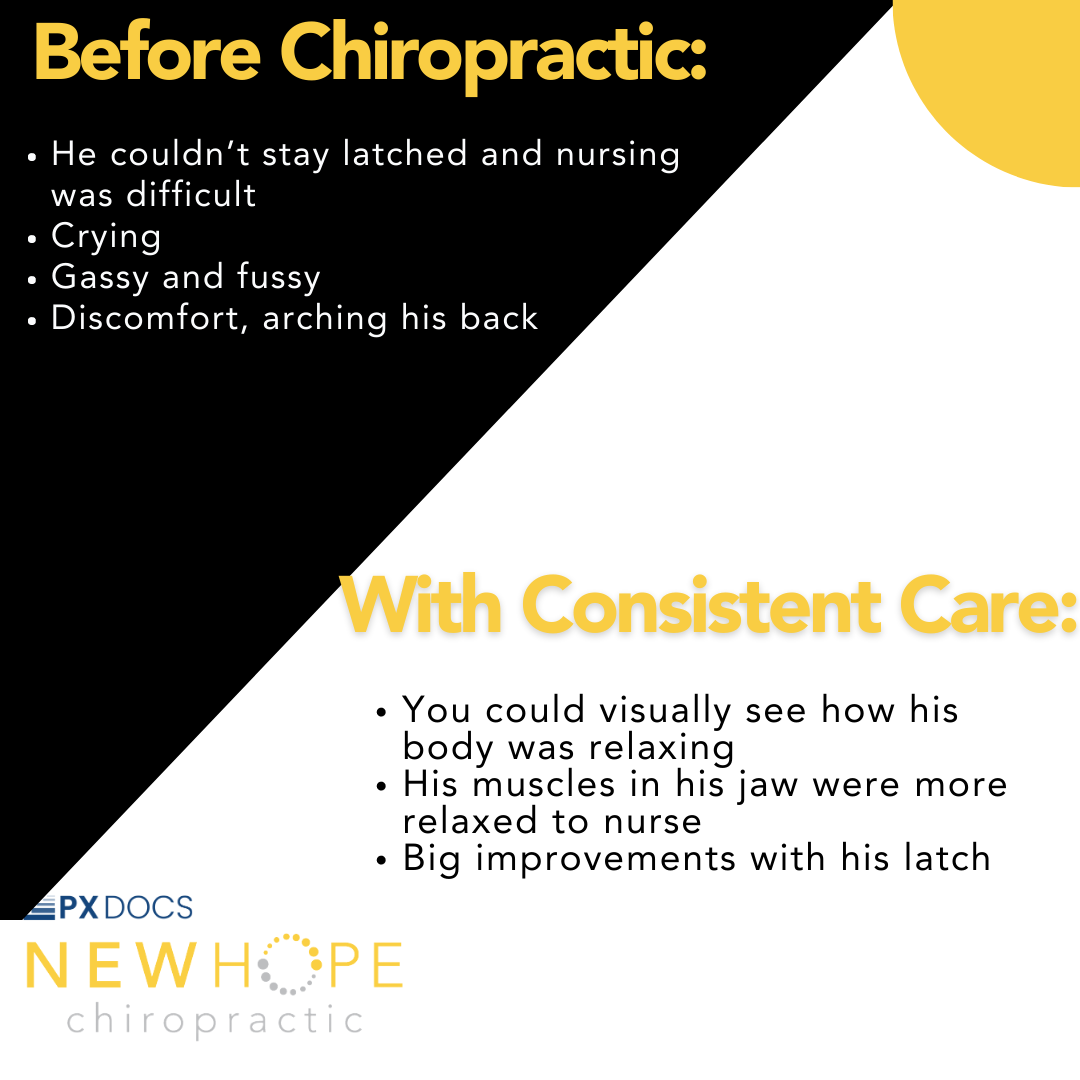One of the most talked about topics concerning infants’ and babies’ health is tongue ties. It is becoming increasingly blamed for numerous pediatric health conditions. If you are wondering if your child has a tongue tie and if it is the reason behind their struggles with latching, uncomfortable nursing, weight gain, colic, reflux, and overall comfort, we want to help you sort that out!
We want to delve into the science behind tongue ties in babies with you, going beyond their potential impact on breastfeeding, speech, and neurodevelopment. We will explore why tongue ties are prevalent today and uncover the true root cause behind these troubles. By understanding the condition and its implications, you can make informed decisions about what to do next.
Naturally, as a loving parent, any difficulties with breastfeeding, latching, or discomfort can immediately put you on hi gh alert. It’s common to receive suggestions from friends, relatives, or pediatricians, with one of the first mentions being, “Could it be a tongue tie?” Suddenly, you find yourself thrust into a topic that presents a multitude of opinions and options, and is often overwhelming to navigate.
gh alert. It’s common to receive suggestions from friends, relatives, or pediatricians, with one of the first mentions being, “Could it be a tongue tie?” Suddenly, you find yourself thrust into a topic that presents a multitude of opinions and options, and is often overwhelming to navigate.
Tongue Tie: What Is It, and What Are the Symptoms?
Tongue tie is a condition that affects newborns, where the strip of tissue that anchors the tongue to the floor of the mouth is too short, restricting movement and function of the tongue. Breastfeeding can become challenging for babies with tongue ties, as they may struggle to latch properly and nurse effectively. Tethered Oral Tissues (TOTs), including discussion of the frenulum and other connective tissues of the mouth and jaw, is a term often used to describe this condition.
Some common difficulties experienced by babies with tongue ties include:
- Difficulty attaching to the breast or staying attached for a full feed.
- Being unsettled and seeming hungry all the time.
- Slow weight gain compared to expectations.
- Making a “clicking” sound during feeding.
Many signs and symptoms of tongue ties overlap with general colic and neuro-gastric distress in infants, which can make it challenging for you to differentiate between the two and determine the root cause of your baby’s nursing and sleep challenges.
Is It a Tongue Tie Causing the Struggles or Another Factor At Play?
To answer this question, we must explore the causes of tongue ties. While traditional medical explanations attribute tongue ties to genetics, we know there is more to the story. Some natural health practitioners connect tongue ties to mutations in MTHFR genes, which affect folate absorption. Studies even suggest that increased folic acid intake, as in prenatal vitamins, may play a role.
As Pediatric Chiropractors specializing in neurology and neurodevelopment, we go beyond traditional approaches by looking at the nervous system and considering factors such as soft tissues. The nervous system’s tone influences the tone of muscles and soft tissues. If both the mother’s and baby’s nervous systems are stuck in fight-or-flight mode, it can affect the frenulum, mouth, and jaw.
While physiology and chemistry matter, true health, and development start with the nervous system.
Tongue ties, like many conditions, often result from a combination of factors, creating a “Perfect Storm.”
What is the Connection Between Prenatal Stress, Birth Trauma, and Tongue Ties?
This “Perfect Storm” frequently begins during the prenatal stage due to the emotional fight-or-flight response of the mother and baby. It becomes compounded during the birth process or delivery, where physically stressful births commonly involve misalignment and fixation of the vertebrae, which have biomechanical and musculoskeletal effects.
Combined with in-utero stress, a neurological component arises during key developmental periods. In fact, a study found that 99 out of 100 healthy newborns experienced somatic dysfunction (misalignment and fixation stress) during the birth process. This adds further pressure to the already compromised cranial and oral system, impacting the baby’s neuro-oral movements.
Care Options for Tongue Ties:
Many parents opt for tongue-tie revision surgery performed by a pediatric holistic dentist. You may consider making this decision based on concerns regarding nutrition, neurological development, and emotional bonding with your baby. However, like any medical procedure, certain factors should be considered first before making this decision.
If your baby experienced stress in utero, abnormal fetal positioning, or birth trauma, the increased tension and thickness of the soft tissues may be a protective response to the entire neurological system. The key is to address the underlying tension and consult with a Neurologically-Focused Pediatric Chiropractor before considering surgical revision. By doing this, we can work together with surgical revision to achieve the best short-term and long-term outcomes for your baby.
Navigating tongue ties or potential tongue ties can be complicated and complex. We are here to help! We so often find that a baby’s tongue tie is associated with moderate to severe tension and stress in the nervous system. The INSiGHT scan, a gentle and non-invasive thermography-based scan, can provide insights into the neurological struggles your baby may be experiencing.
Remember, as parents, you are not alone in this journey. But we want you to have access to the complete narrative, encompassing the underlying factors behind tongue ties and exploring comprehensive care options, enabling you to make well-informed decisions for your baby’s health and well-being. This approach will greatly contribute to you and your baby’s prosperous journey during the nursing period and throughout infancy, something every parent and baby deserves!
Want to learn ever more?! Check out this video: https://youtu.be/QmcUu88DVmI

